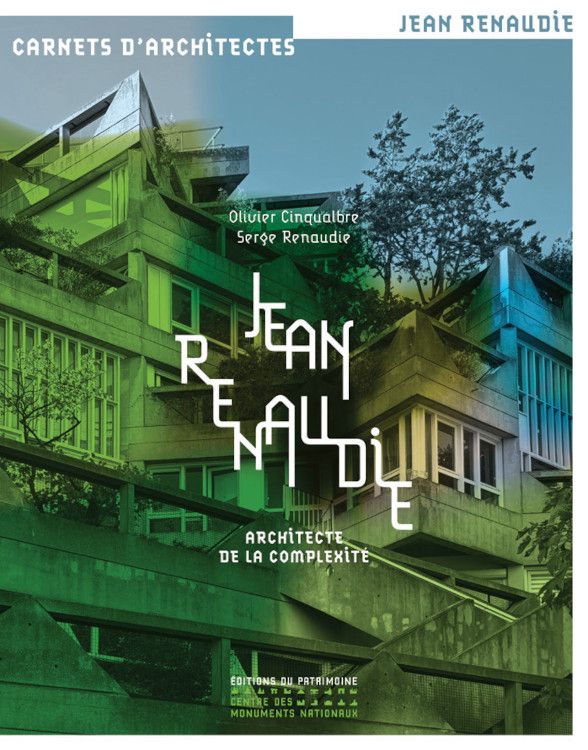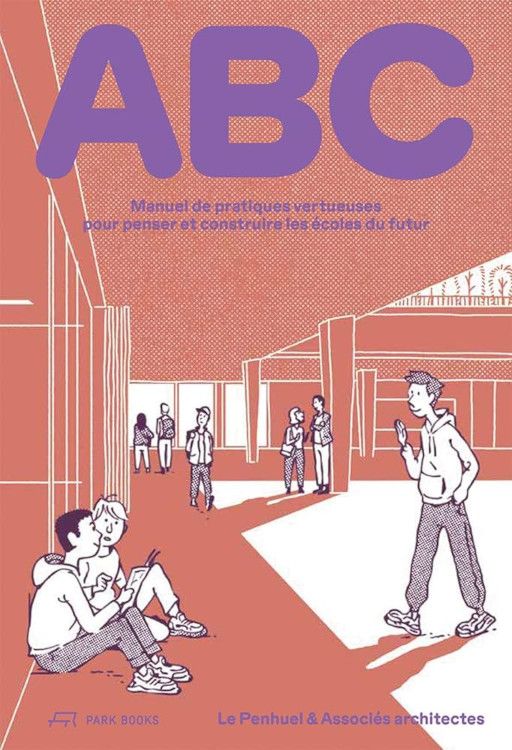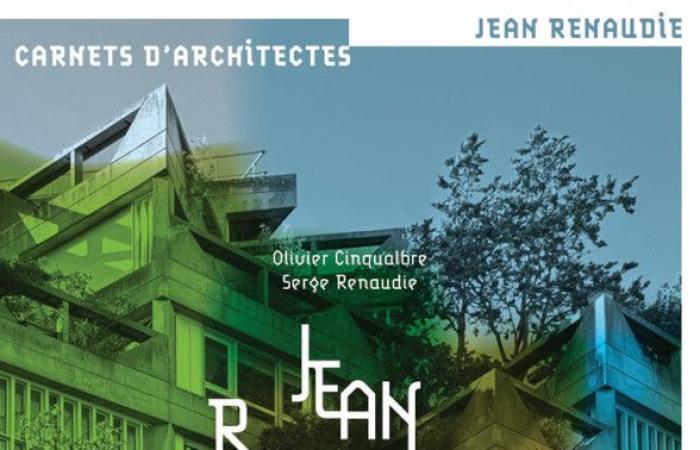The days are round with Gilles Perraudin, yet complex with Jean Renaudie, even truant with Gaëtan Le Penhuel. The June selection, when the days are long.
The days are round, by Gilles Perraudin
The story / manifesto of an architect’s life: a rereading of Gilles Perraudin’s journey for himself, allowing us to retrace the path of a thought in perpetual movement.
The days are round is the new work in the “Essais” collection by Gilles Perraudin. He invites us to follow him in the story of an architect’s life, his own. This rereading of his own journey seeks to show, from the awakening of an architect to his full maturity, the journey of a thought in perpetual movement, in perpetual research and questioning.
Ideas are born and live over time. They sharpen, refine, become more precise and transform so that the eyes become clearer little by little. By working, this gaze sees further and further, the gray areas become clearer. By becoming clearer, the gesture becomes safer, fairer towards the world which surrounds it, which welcomes it and which shelters it.
Gilles Perraudin never stopped moving forward and while moving forward he never stopped looking further and further back. This movement took him further and further into history to re-enter it and more and more towards destitution under the light.
About the Author – Since 1980, Gilles Perraudin (born in 1949 in Bourgoin-Jallieu) develops in his architectural production, within the Jourda & Perraudin agency then the Perraudin Architectes agency, a project strategy based on understanding and respect for the environment, which proceed of their reflection on materials and energy management. He has long been interested in approaches offering alternatives to modernist architecture supporting its diffusion on industrial and consumerist logics.
Publisher: presses du real; The days are round, by Gilles Perraudin; 192 pages; Size: 17.5 x 12 cm; Price: €25.00
Jean Renaudie. The architect of complexity

Grand Prix national d’architecture in 1978, co-founder and member of the Atelier de Montrouge (until 1968), the architect and town planner Jean Renaudie is the author of a generous work, favoring users. The only monograph available on Jean Renaudie, an uncompromising and socially committed architect.
From his first thoughts and realizations, from a crèche in Montrouge to the study for a holiday village
in the Var (Gigaro), from the prospective study of a set of 5,000 housing units in Saint-Denis (Francs-Moisins district) to that for the development of a new town in Vaudreuil, Renaudie is developing a method based on drawing in order to formalize the complexity of what constitutes, in his eyes, a home, a facility or a city: the relationships between people and between elements.
His favorite site? The hill. His reference tools? The organic and geometry. Distinguishing itself from slab-based town planning and the spatial organization of the collective building of the 1970s, the architect stretches the interior space, designs apartments that are all different and equipped with planted terraces, connects housing, workplaces, schools, shops and services via pedestrian “walks”.
The city center of Ivry-sur-Seine, the first realization of these principles, remains its emblematic work, extended by the Cité des Étoiles in Givors (Rhône), then by a district mixing buildings and houses in Saint-Martin-d’ Hères (Isère).
Since the last publications, dating from 1992 and out of print, no book exists in French on this major architect of collective housing, an early supporter of programmatic diversity.
About the authors
Serge Renaudie, an architect by training, graduated from the École Nationale des Beaux-Arts in 1971, he founded and directed the editorial staff of the Ragile magazine. Alongside Jean Renaudie, he collaborated on a large number of projects and studies entrusted to the Renaudie agency.
Olivier Cinqualbre is honorary curator of the National Museum of Modern Art – Center for Industrial Creation (MNAM-CCI).
Publisher: Éditions du Patrimoine; Jean Renaudie. The architect of complexity; 200 pages; Pin ; Size: 16.5 x 21 cm; Price: €25.00
ABC – Manual of virtuous practices for thinking and building schools of the future, by Gaëtan Le Penhuel

The agency founded by Gaëtan Le Penhuel has acquired great expertise in the construction of school buildings for nearly 30 years, having made a name for itself in this field with pioneering designs. Drawing on this wealth of experience, Gaëtan Le Penhuel today presents ABC: Manual of virtuous practices for thinking about and building schools of the future, a compact guide for developing school buildings of tomorrow that meet the needs of students and parents.
In the form of an ABC, it is a reflection on the way in which architecture can support innovative educational practices. Through interviews, the architects of the Le Penhuel & Associés agency discuss the different school spaces, such as the classroom, the playground and the library, exploring the spatial levers to be mobilized to develop the school
Each of the ten chapters in this book focuses on a key element of these structures. In conversation with Alice Dubet, Gaëtan Le Penhuel traces the paths to better school architecture and highlights the obstacles to overcome and the mistakes to avoid. Quentin Vijoux’s illustrations provide easy visual access to the concepts of Le Penhuel & Associés architects.
About the Author – Gaëtan Le Penhuel Architectes & Associé, an agency created in Paris in 1994, develops its creations with a multidisciplinary and curious approach. Building education at all levels, from kindergarten to university, is at the heart of their work.
Publisher: Park Books; ABC – Manual of virtuous practices for thinking about and building the schools of the future; 152 pages; Illustrations; Hardcover; Size: 15 x 22 cm; Price: €25.00









